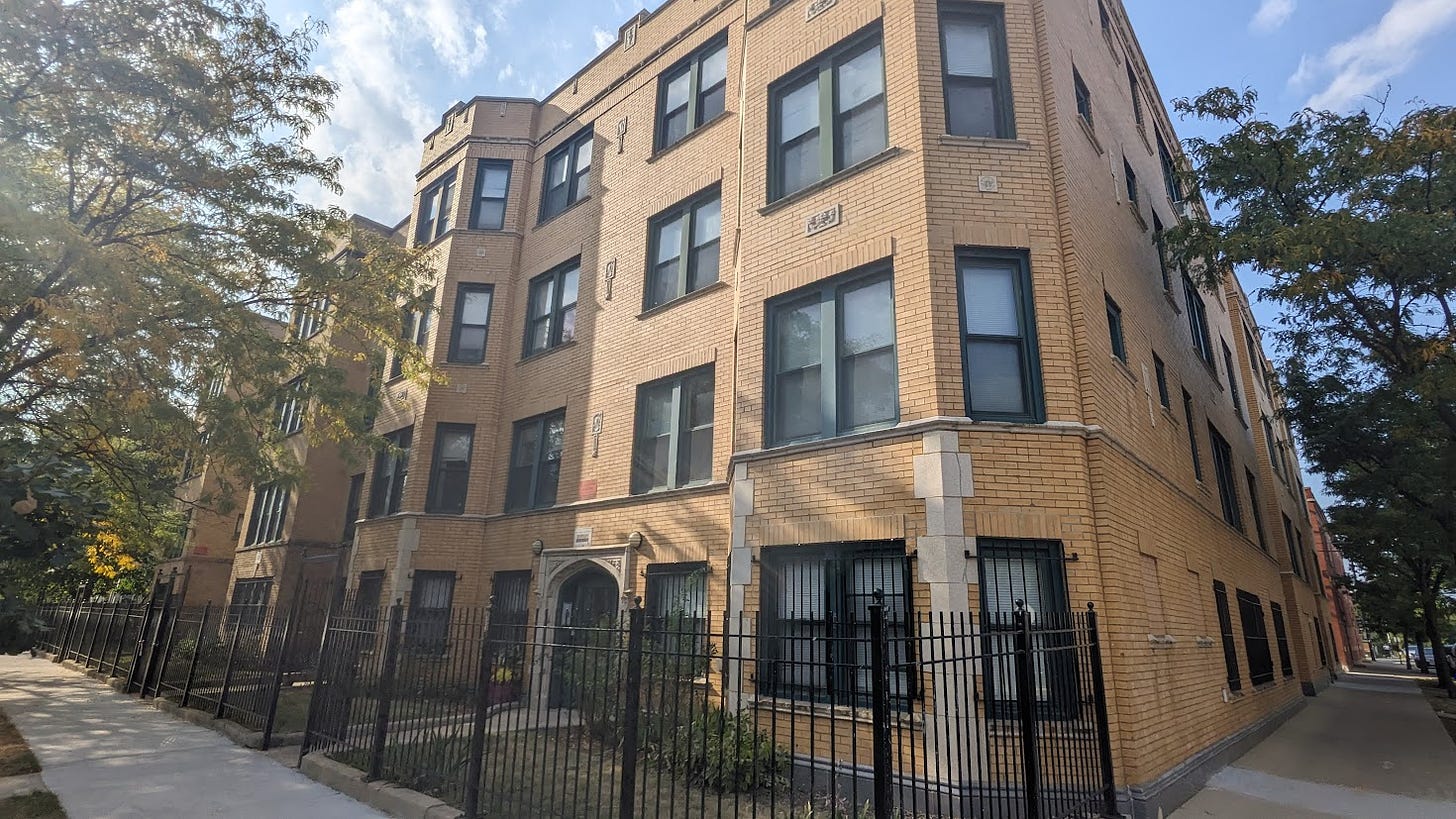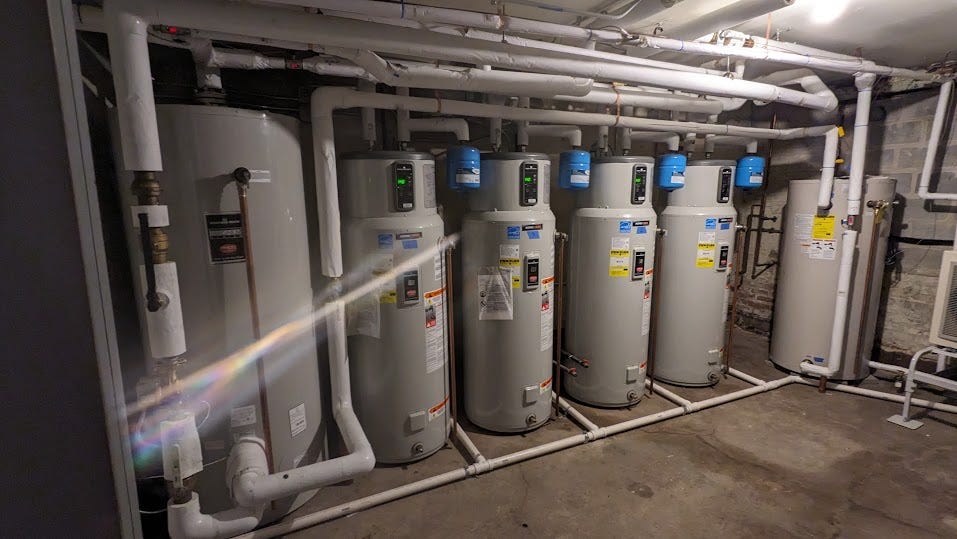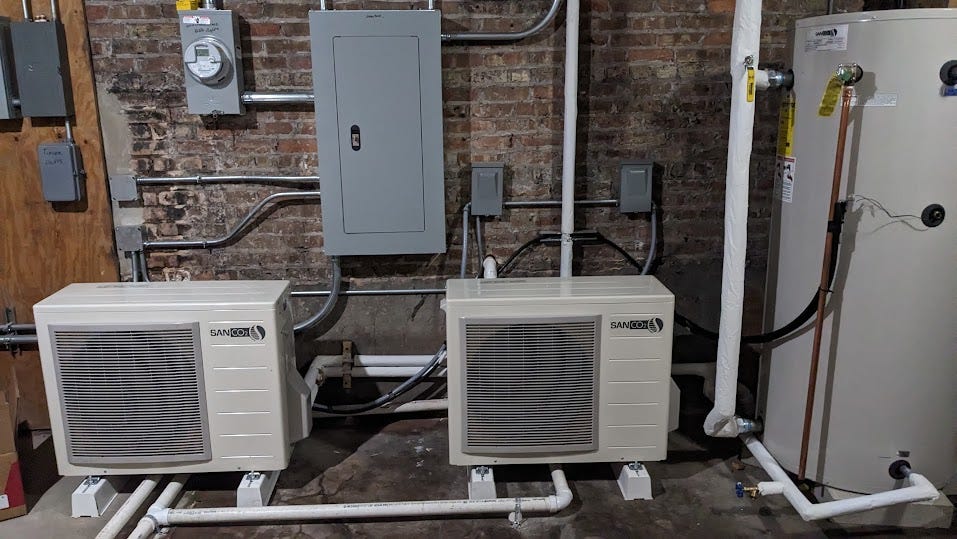Sign up for daily news updates from CleanTechnica on email. Or follow us on Google News!
The second stop of my heat pump water heater tour across America was in Chicago to check out one of the first installations of a central heat pump water heater (a heat pump water heater that provides hot water for many apartments in a multifamily building) at an affordable housing development called La Paz Place.

My hosts were the nonprofits Elevate and Bickerdike Redevelopment Corporation, which have a long history of working alongside tenants to make buildings more efficient. In recent years, the two orgs have looked to decarbonize their affordable housing buildings through electrification. The La Paz Place building I was able to tour was one of the first buildings in the city to undergo this green makeover.
With multiple grants from various philanthropic sources, the team removed all gas from the building and added electric stoves, electric dryers, and air source heat pumps for space conditioning. These heat pumps were extra welcome because they provided cooling to residents in the summer, which before the project was only possible through tenant-supplied window units.
With funding from the local utility ComEd, the team tackled the final electrification challenge — converting the building’s gas water heaters to heat pumps. Central heat pump water heaters (HPWH) are being installed in big commercial buildings of all types, especially on the West Coast where they are easier to retrofit due to milder climates. Sales of central HPWH are, according to one manufacturer, “exploding” as communities look to decarbonize their buildings. But colder cities like Chicago and New York are only now seeing their first installations of this transformative technology because it is more challenging to install central HPWHs in these climates due to the colder water and air temperatures.
The Elevate team installed the central HPWH at La Paz in late 2022. They started by installing four 80-gallon Bradford White heat pump water heaters to serve fifteen apartment units in one building at La Paz Place.

The team quickly found that the circulation pumps that circulate water to all the buildings created challenges for these heat pump water heaters, and that they would need extra storage, so they added an additional 200-gallon tank and two additional SanCo2 water heaters.

Elevate and Bickerdike Redevelopment Corporation were also working under the constraints of limited electrical capacity. They couldn’t add many more heat pump water heaters because they would have had to upgrade the electrical service to the building (which is cost prohibitive).
With the extra storage and heat pumps, the central heat pump current setup has been working well, producing lots of hot water and doing so very efficiently. But the team also isn’t shy about talking about the challenges. They installed one of the first central HPWHs in a cold climate, had to make adjustments, and learned a lot about system design which they’ve incorporated into their other installations and other buildings.
The team has installed additional central HPWHs and is now looking to partner with the Advanced Water Heating Initiative to install one in a large 50+ unit building.
Congrats to the team for the trailblazing work in decarbonized water heating, and check out the video below that I made interviewing the team onsite on my heat pump water heater tour across America.

Have a tip for CleanTechnica? Want to advertise? Want to suggest a guest for our CleanTech Talk podcast? Contact us here.
Latest CleanTechnica.TV Videos
CleanTechnica uses affiliate links. See our policy here.
CleanTechnica’s Comment Policy





